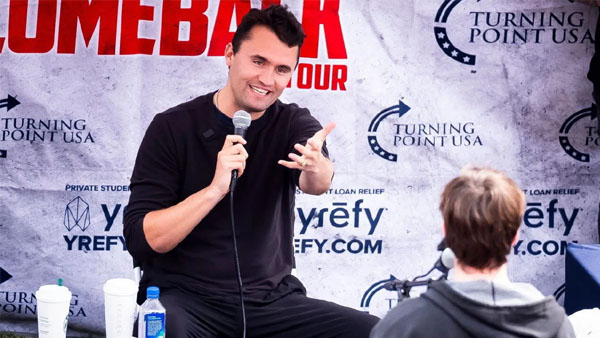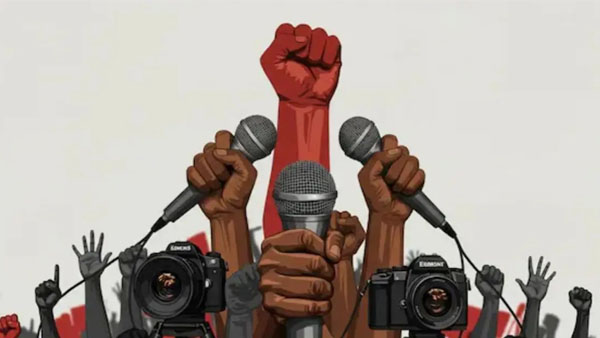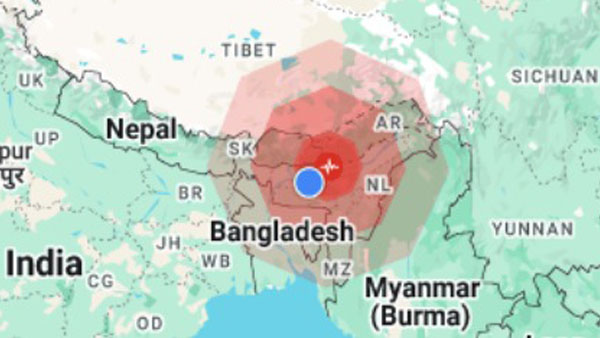By Satyabrat Borah
The assassination of Charlie Kirk, a prominent conservative figure, has sent shockwaves through the United States, stirring emotions that resonate on both personal and societal levels. At its core, the tragedy is deeply human: a young life extinguished, a family left to grapple with grief, and a community mourning the loss of someone who, regardless of political differences, was a son, a friend, and a voice in the public square. This private sorrow touches anyone with a sense of empathy, even those who found Kirk’s views polarizing or divisive. Yet, beyond the personal loss lies a broader, more ominous public tragedy: the specter of political assassination, a grim reminder that humanity’s progress over millennia has not fully eradicated the impulse to resolve ideological conflicts through violence. The killing of Kirk by Tyler Robinson on Wednesday, alongside other recent attempts on political figures like Donald Trump, signals a dangerous erosion of tolerance in a nation already strained by polarization. It also raises questions about the fragility of democratic discourse and the risks of a society where guns are readily accessible and political differences are increasingly viewed as existential threats.
The history of assassination stretches back to the earliest records of human civilization. Nearly 3,849 years ago, a prince in Thuringia, Germany, was stabbed to death by a relative or bodyguard, marking what historians consider the first documented political assassination. Since then, the act of targeting leaders to silence their influence or alter the course of history has persisted across cultures and eras. Pharaohs, emperors, samrats, and sultans have all faced the assassin’s blade, arrow, or poison. In modern times, the frequency of such acts might seem diminished, but this is a deceptive calm. Between 1875 and 2004, records document 298 publicly reported assassination attempts on national leaders, with 59 resulting in death. These acts have had profound consequences, from the assassination of Archduke Franz Ferdinand in 1914, which ignited World War I, to the failed attempt on Adolf Hitler in 1939, when a bomb detonated minutes after he left a Munich beer hall to catch a train. Had that attempt succeeded, the course of World War II might have been altered, sparing millions of lives. Yet, the moral ambiguity of such acts complicates any celebration of their potential outcomes. To endorse the assassination of Hitler is to tread a perilous philosophical line, one that equates the motives of those who targeted a genocidal dictator with those who attacked leaders like Jacques Chirac, whose policies, while controversial to some, did not approach the same moral abyss.
Assassination is an act of desperation and intolerance. It reflects a belief that dialogue, debate, or democratic processes are insufficient to address grievances, and that violence is the only path to change. Tyler Robinson, who killed Charlie Kirk, and Thomas Crooks, who attempted to assassinate Donald Trump last year, may have been driven by conviction, but their actions betray a deeper hopelessness: a conviction that opposing views must be eradicated rather than engaged. This mindset echoes the ends-justify-the-means philosophy that Mahatma Gandhi, a staunch advocate of nonviolence, rejected. Gandhi’s approach to political struggle emphasized the power of ideas, dialogue, and moral persuasion over physical force. He understood that violence, even when aimed at a perceived tyrant, risks perpetuating a cycle of retribution and dehumanization. To kill an individual for their ideas is not only an act of cowardice but also a rejection of the principles that underpin a free society. It assumes that one’s own worldview is so infallible that it justifies extinguishing another’s life.
The United States, with its deeply entrenched gun culture and growing political polarization, provides fertile ground for such acts to take root. The accessibility of firearms, combined with a climate where political opponents are often demonized as enemies, creates a volatile mix. The attempt on Trump’s life and the killing of Kirk are not isolated incidents but part of a disturbing pattern. Over the past year, several opinion makers and political figures have faced threats or attacks, suggesting that the boundary between ideological disagreement and violent action is thinning. This trajectory risks returning the nation to a kind of Wild West mentality, where disputes are settled not with words but with bullets. The romanticized image of the frontier, with its vigilante justice and lawlessness, is a far cry from the ideals of a modern democracy. Yet, when individuals take it upon themselves to act as judge, jury, and executioner, they undermine the institutions that have been painstakingly built to channel conflict into peaceful resolutions.
This phenomenon is not unique to the United States. In India, pockets of political violence persist, where crude bombs and firearms are used to settle scores or silence dissent. While such acts have not yet escalated into a nationwide contagion, they serve as a warning of what can happen when grievances are left to fester and access to weapons is unchecked. The state, in both nations, has a critical role to play in preventing the spread of this violence. Robust law enforcement, coupled with efforts to address the root causes of polarization, is essential. But beyond security measures, there is a deeper need for a cultural shift toward tolerance. Tolerance does not mean agreement or acquiescence; it means recognizing the humanity of those with whom we disagree and engaging them through reason rather than force.
The erosion of tolerance in the United States is evident in the way political discourse has devolved. Social media platforms, including X, amplify outrage and division, often reducing complex issues to simplistic narratives of good versus evil. When individuals like Crooks or Robinson act on these narratives, they are not merely expressing personal frustrations but reflecting a broader societal failure to foster constructive dialogue. The consequences of this failure are dire. A single assassination can destabilize a nation, as seen in the aftermath of Franz Ferdinand’s death, which plunged Europe into chaos. Even failed attempts, like the one on Hitler, can embolden regimes or inflame tensions. In a polarized society, each act of violence risks inspiring copycats, creating a cycle that is difficult to break.
The solution lies not in suppressing dissent but in channeling it through democratic means. Bullet points, as the saying goes, should replace bullets. Elections, debates, protests, and public discourse offer avenues for expressing disagreement without resorting to violence. Yet, these mechanisms are only effective if citizens believe in their efficacy. When faith in institutions wanes individuals may feel justified in taking matters into their own hands. Rebuilding trust in these institutions is a monumental task, but it begins with leadership that models civility and encourages dialogue over demonization.
Teaching critical thinking, empathy, and the value of pluralism can help inoculate future generations against the allure of extremism. Schools and communities must emphasize that disagreement is not a threat but a strength, a sign of a vibrant society where diverse ideas coexist. This is particularly urgent in nations like the United States and India, where diversity is both a strength and a potential fault line. Without a commitment to tolerance, these fault lines can fracture, leading to violence and division.
The assassination of Charlie Kirk is a tragedy on multiple levels: a personal loss that devastates a family and a public act that undermines the principles of democracy. It serves as a stark reminder that the progress of civilization is not guaranteed. The tools of violence like knives, guns, bombs have changed little since that prince in Thuringia was killed nearly four millennia ago, but the tools of peace like dialogue, tolerance, and reason require constant effort to wield effectively. In the United States, India, and beyond, the challenge is to reject the temptation of violence and embrace the harder but more enduring path of civility. Only then can societies hope to break the cycle of assassination and build a future where ideas, not bloodshed, shape the course of history.




